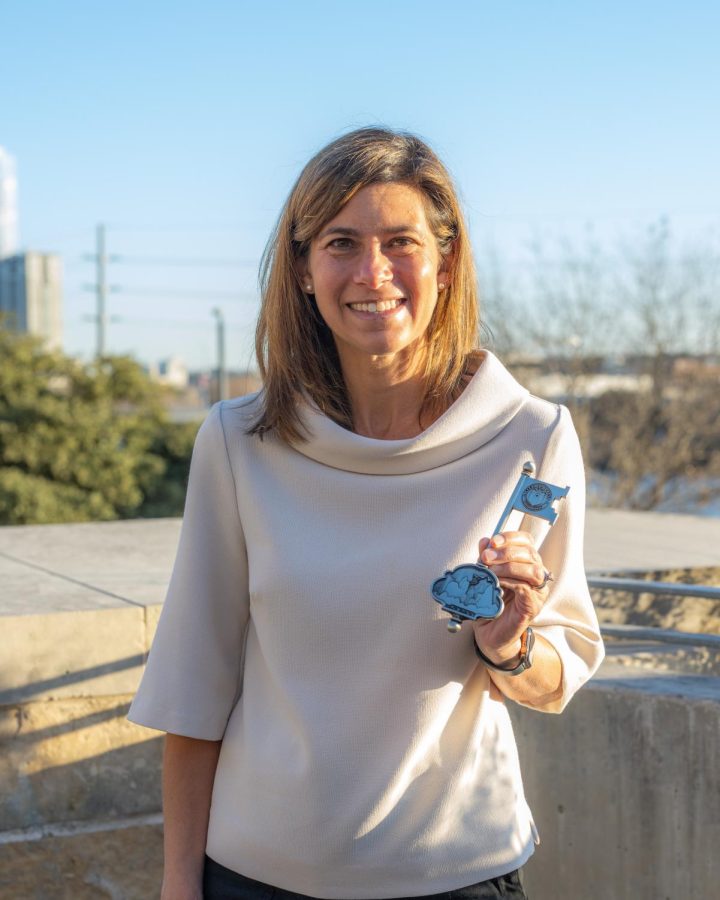UT pandemic scientist awarded with key to the city of Austin
January 25, 2023
UT pandemic scientist Dr. Lauren Ancel Meyers received a key to the city earlier this month for her lab’s contribution to Austin’s COVID-19 analysis and pandemic response.
Meyers formed the UT-Austin COVID-19 Modeling Consortium in 2020 so community members could access up-to-date COVID-19 statistics for Austin and the state of Texas. The consortium — composed of pandemic data scientists, computing specialists and researchers from Dell Medical School — created a series of dashboards that visualize changes and predictions in COVID-19 hospitalizations, positive cases in schools, vulnerability based on ZIP code and other risk factors.
Meyers, who has studied epidemiology for over 20 years, said she was shocked after hearing she would receive a key to the city, but partners from the consortium and the city said her lab’s work is more than deserving of the honor for spearheading Austin’s COVID-19 awareness.
“It was a meaningful and memorable ceremony for me and many members of my team,” Meyers said. “Even though it was given to me, it really was a tribute to the work of dozens of people who worked around the clock.”
Former Austin Mayor Steve Adler, who awarded Meyers with the key at the end of his term, said the consortium and Meyer’s guidance helped keep COVID-19 mortality rates low in Austin and Travis County. The region’s mortality rate was less than half of the state’s mortality rate, Adler said.
“When you look at the elements that brought our community together and enabled us to do as well as we have done, there are some people who stand out, and Dr. Meyers is among that group,” Adler said. “She was doing the modeling that helped her direct us both in terms of the timing of when to act and what to do in response to the virus. She also spent an inordinate amount of time helping me understand pandemics and impacts, and that proved valuable for me in terms of setting our community’s response to the virus.”
Meyers said her lab conducted epidemiology research before the COVID-19 pandemic, so they had the tools to pivot and collect data at the onset of the virus. Meyers collected local hospital data for Austin’s Coronavirus Task Force and worked with the White House Coronavirus Task Force in 2020 to create projections about the national rates of infection and mortality.
Graduate research assistant Emily Javan, who started working in Meyers’ lab in 2019, said the past couple years have been an immense, hands-on effort from the consortium as the modelers constantly monitored the state of COVID-19 and met with public health officials.
“The goal of public health is to decrease morbidity and mortality within a population … so if you have a recommendation that’s going to help save lives … (that population) needs to be able to understand it,” Javan said. “(Dr. Meyers) is so good at taking requests from the public and translating them into digestible science.”
Javan said she hopes disease modeling evolves to create even more functional tools for epidemiology monitoring that’s more accessible, such as through an app that displays daily risk of exposure.
Meyers said the consortium will continue analyzing COVID-19 data and updating models so the community can protect its health and be prepared for future pathogen threats.
“I would have loved to go my entire career having never having had a pandemic, but I’m really grateful that we had an opportunity in Austin to bring our research to bear on these sorts of life and death situations,” Meyers said.



